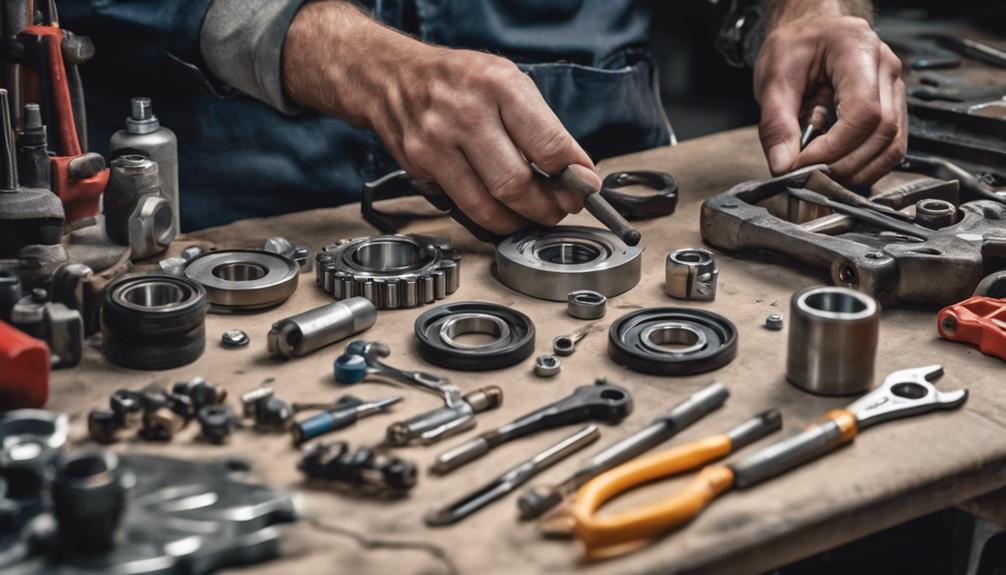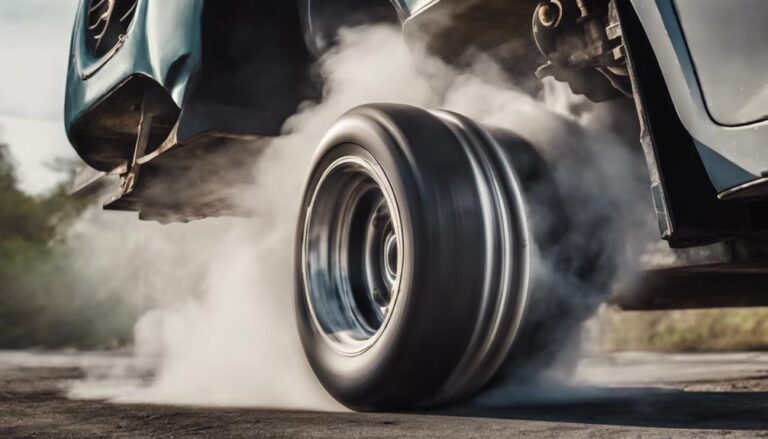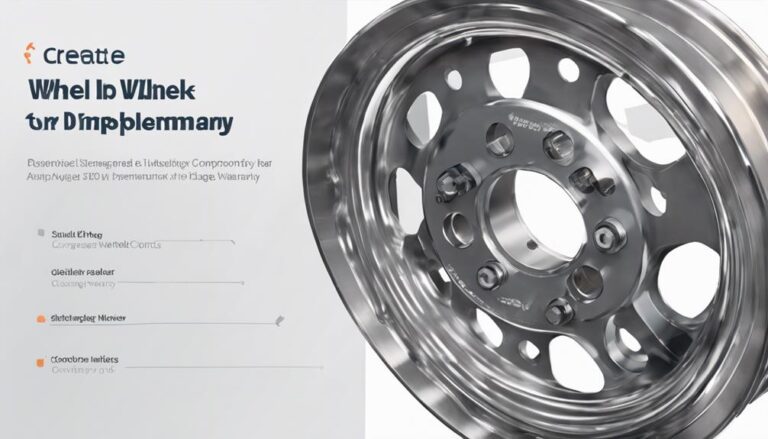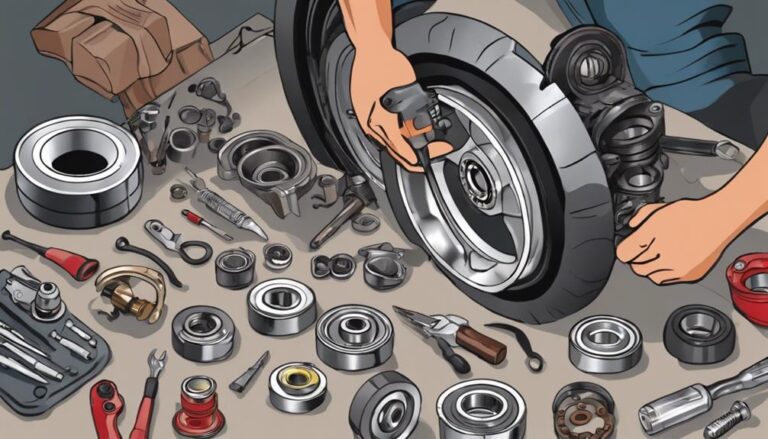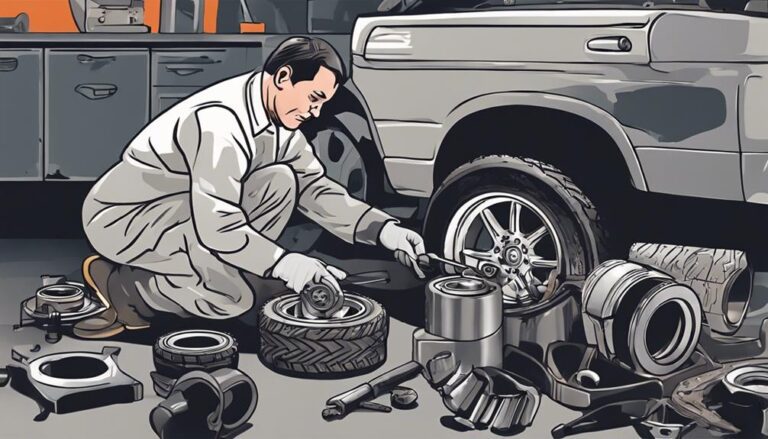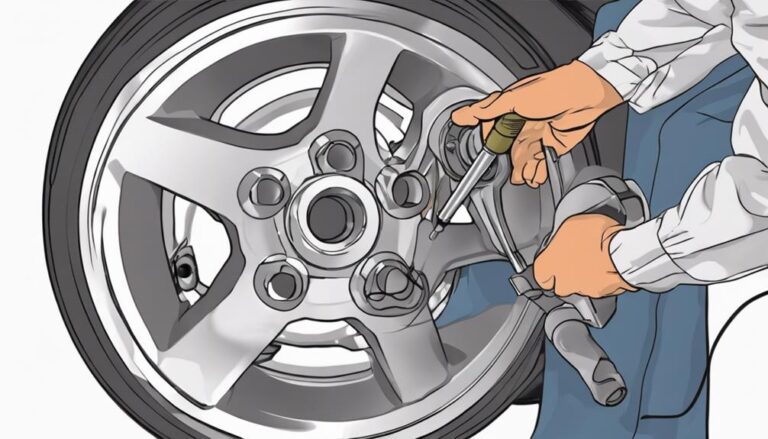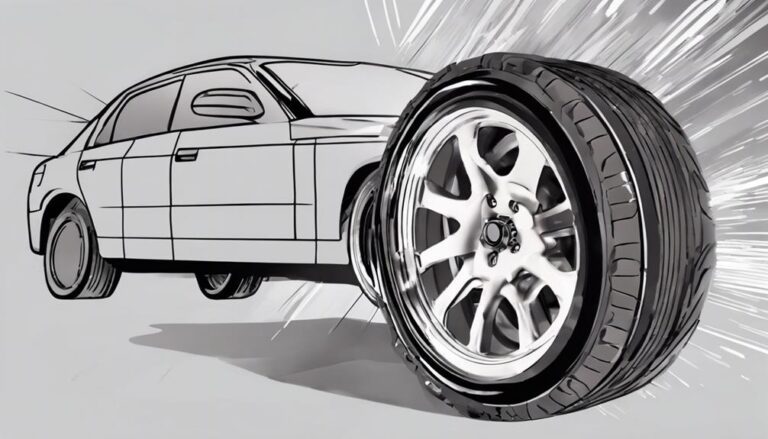Estimating the Cost for Wheel Bearing Replacement
So, you've found yourself in the thrilling situation of needing a wheel bearing replacement. The cost estimation for this essential car part can be a bit of a maze to navigate, with various factors influencing the final bill.
From the type of bearing your vehicle requires to labor rates and parts expenses, the numbers can quickly add up. But fear not, as understanding these elements can help you prepare for what lies ahead and maybe even save you a few bucks in the process.
Key Takeaways
- Average cost ranges from $279-$363, with national average around $350.
- Labor costs range from $161-$203, parts costs range from $118-$160.
- DIY savings range from $107-$147, while mechanic costs can vary from $400-$1000.
- Consider replacing wheel bearings in pairs, explore cost-saving options, and opt for quality parts.
Average Cost for Wheel Bearing Replacement
When replacing a wheel bearing, the average cost typically falls within the range of $279 to $363, covering both labor and parts expenses. This cost includes labor costs ranging from $161 to $203 and parts costs ranging from $118 to $160.
On average, the national cost for fixing wheel bearings at one wheel totals around $350. It's important to note that luxury vehicle brands may incur higher replacement costs compared to non-luxury vehicles due to the quality and pricing of parts specific to those brands.
Additionally, the overall cost of wheel bearing replacement can vary significantly based on the make and model of the vehicle, as well as the labor rates and parts costs associated with that particular vehicle. Hence, when estimating the cost for wheel bearing replacement, it's vital to take into account these factors to ensure an accurate assessment of the expenses involved.
DIY Vs. Mechanic Costs
Comparing DIY wheel bearing replacement costs with those charged by mechanics provides insight into potential savings for car owners. Here are three key points to consider:
- DIY Wheel Bearing Replacement Cost: DIY enthusiasts can expect to spend between $107 to $147 on average for a wheel bearing replacement project. This estimate includes the cost of purchasing the necessary parts and tools.
- Mechanic Costs: On the other hand, professional mechanics typically charge car owners between $400 to $1000 for front and rear wheel bearing replacements. This price range encompasses labor costs, parts, and any additional services provided by the mechanic.
- Saving on Labor Costs: Opting for a DIY approach can reduce expenses related to labor rates. By investing time and effort into replacing the wheel bearings yourself, you can save on the labor expenses that would be incurred if you opted for professional services. Remember that the specific cost breakdown for wheel bearing replacement can vary based on the make and model of your car.
Factors Affecting Replacement Costs
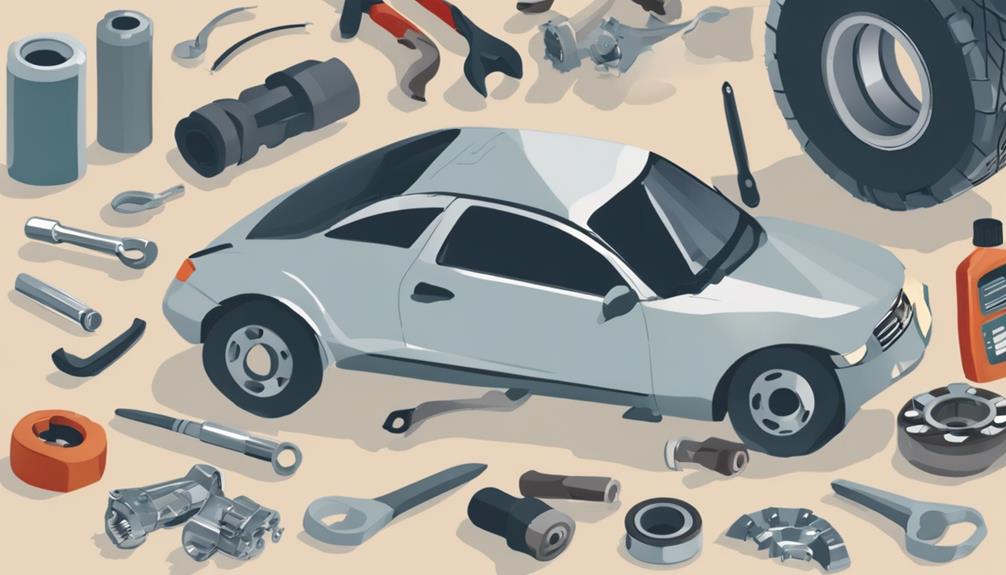
To understand the varying costs associated with wheel bearing replacement, consider the impact of factors such as the vehicle's make and model, labor expenses, and parts pricing. Luxury brands often command higher costs due to the specialized nature of their parts. Labor costs can range from $161 to $203, while parts can vary from $118 to $160. The national average for replacing wheel bearings on one wheel hovers around $350. It's worth noting that the cost of wheel bearing replacement doesn't always necessitate replacing bearings on both wheels of the same axle. This flexibility can help manage expenses based on the specific needs of your vehicle.
| Factors | Cost Range |
|---|---|
| Labor | $161-$203 |
| Parts | $118-$160 |
| National Average | Around $350 |
Signs of Wheel Bearing Failure
Detecting wheel bearing failure is important as it manifests through distinct auditory and handling cues while driving. Here are three signs to watch for:
- Auditory Cues: Pay attention to any unusual noises like a humming or grinding sound coming from the wheels. These noises can indicate issues with the wheel bearings and shouldn't be ignored.
- Handling Changes: If you notice clicking sounds while turning or experience wheel wobbling, these could be signs of potential wheel bearing failure. Addressing these issues promptly can prevent further damage.
- Other Indicators: Keep an eye out for uneven tire wear or ABS failure, as these could also point towards failing wheel bearings. Additionally, if your vehicle pulls to one side or you feel vibrations in the steering wheel, it might be time to inspect the wheel bearings for any issues.
Being alert to these signs can help you catch wheel bearing problems early, potentially saving you from more extensive repairs down the road.
Tips for Cost-Effective Replacement
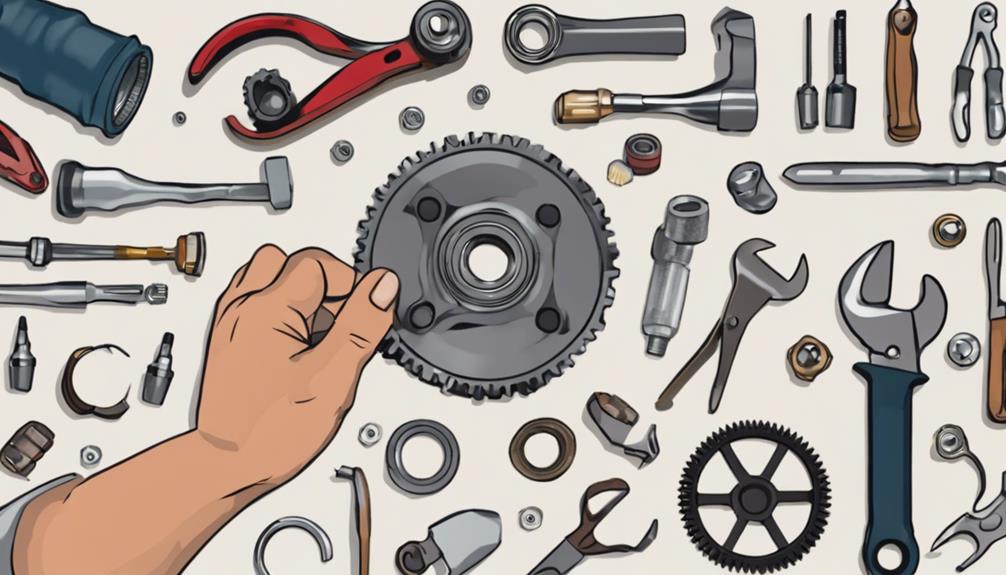
Looking to save money on wheel bearing replacement costs without compromising quality or safety? When aiming for a cost-effective wheel bearing replacement, there are key strategies to contemplate.
First, opt to replace wheel bearings in pairs to maintain balance and prevent future issues. Compare quotes from various repair shops to secure the best deal for the replacement. Prioritize quality parts, whether OEM or aftermarket, to guarantee longevity and reliability. Discuss labor expenses upfront with your mechanic to understand the cost breakdown.
Additionally, explore warranty options on both parts and labor to protect against any potential post-replacement issues. By being proactive in researching quotes, choosing quality parts, understanding labor costs, and contemplating warranty options, you can effectively manage the cost of wheel bearing replacement while still receiving a high standard of service.
Frequently Asked Questions
How Much Should a Wheel Bearing Job Cost?
When considering a wheel bearing job cost, factor in labor fees, parts quality, warranty options, and hidden charges. Compare with other repairs, explore DIY vs professional options, seek shop discounts, online tutorials, and prioritize preventative maintenance for long-term savings.
How Many Hours Does It Take to Replace a Wheel Bearing?
When replacing a wheel bearing, anticipate the task to take 4-6 hours for first-timers. make sure you have the necessary tools and follow a step-by-step process. Avoid common mistakes, consider DIY vs professional work, and remember the signs of a bad wheel bearing.
How Much Does It Cost to Do a Wheel Bearing on Car?
When replacing a wheel bearing on a car, costs vary. DIY options can range from $107 to $147, while professional services may cost $400 to $1000. Consider average pricing, quality of parts, warranty coverage, and comparison of costs.
Can You Drive a Car With a Bad Wheel Bearing?
You should not drive a car with a bad wheel bearing. Continuing to drive with this issue poses risks to driving safety, such as stability problems, potential accidents, and loss of control. Addressing this promptly is essential.
Conclusion
To sum up, the average cost for wheel bearing replacement is around $350 nationally, with luxury brands often incurring higher expenses.
One interesting statistic to note is that addressing wheel bearing issues promptly can prevent further damage and potential accidents.
Regular monitoring of signs like humming noises, ABS failure, or wheel wobbling is important for early identification of bearing problems to make sure safe and cost-effective replacement.

